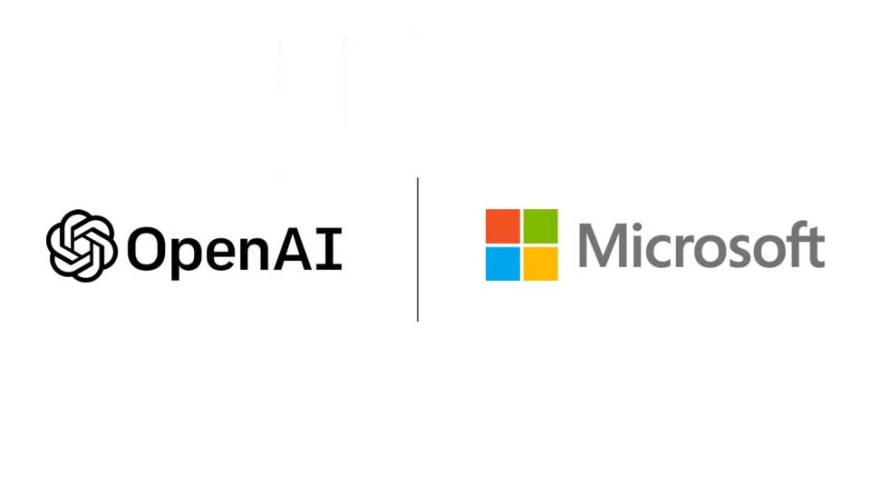Microsoft No Longer Open AI's Exclusive Cloud Provider : Ends Partnership
Discover how OpenAI's decision to lift Microsoft's exclusivity as its cloud provider marks a significant shift in the AI and cloud computing industries. Explore the implications for Microsoft, OpenAI, and the broader tech landscape.

In a significant shift within the artificial intelligence and cloud computing landscapes, Microsoft made a posgt is no longer the exclusive cloud provider for OpenAI. This development marks a pivotal moment in the relationship between the two tech giants and highlights the evolving dynamics of the AI industry.
Background of the Partnership
Microsoft and OpenAI first partnered in 2019 when Microsoft invested $1 billion into the AI research organization. This collaboration was strengthened in 2021 with additional investments, cementing Microsoft as the primary cloud partner for OpenAI. Azure, Microsoft’s cloud platform, became the backbone for OpenAI’s computing needs, powering services like ChatGPT and DALL-E.
Through this partnership, Microsoft integrated OpenAI’s technology into its own products, such as Azure OpenAI Service, Microsoft 365 Copilot, and various developer tools. This symbiotic relationship gave both companies a competitive edge—Microsoft gained access to cutting-edge AI models, and OpenAI benefited from Azure’s scalable infrastructure and global reach.
The End of Exclusivity
While the partnership remains strong, the exclusivity clause has been lifted, allowing OpenAI to work with other cloud providers. This decision reflects OpenAI’s need for flexibility and redundancy in managing its massive computational requirements. By diversifying its cloud infrastructure, OpenAI can reduce potential risks associated with dependency on a single provider and optimize costs and performance.
Industry experts suggest this move is also indicative of the increasing competition in the cloud market. Companies like Google Cloud, Amazon Web Services (AWS), and Oracle are vying for partnerships with AI firms, offering specialized hardware, competitive pricing, and advanced machine learning tools.
Implications for the Tech Industry
-
For Microsoft: While losing exclusivity might seem like a setback, Microsoft’s strategic investments and deep integration with OpenAI’s tools ensure it remains a key partner. The Azure OpenAI Service is a cornerstone of Microsoft’s AI strategy, and the company’s position as a leading AI provider is unlikely to wane.
-
For OpenAI: The ability to collaborate with multiple cloud providers will enable OpenAI to scale more efficiently, ensure service reliability, and leverage diverse technological capabilities. This flexibility aligns with OpenAI’s mission to ensure its AI advancements are broadly accessible and robust.
-
For Competitors: Other cloud providers now have an opportunity to partner with one of the most prominent names in AI. This could lead to increased innovation and competition in the cloud market as providers compete to meet OpenAI’s needs.
Broader Trends in AI and Cloud Computing
The lifting of exclusivity underscores a broader trend in the industry—a push towards multi-cloud strategies. As AI applications become more integral to businesses and society, the demand for reliable, scalable, and cost-effective cloud solutions continues to grow. Companies are increasingly adopting multi-cloud approaches to mitigate risks, optimize performance, and avoid vendor lock-in.
This development also signals the growing interdependence between AI and cloud computing. Advanced AI models require immense computational power, and cloud providers play a critical role in facilitating this. The competition to provide the best AI infrastructure will likely drive innovation and benefit the industry as a whole.
Microsoft’s loss of exclusivity as OpenAI’s cloud provider is a noteworthy shift, but it is not a divorce. The partnership remains robust, and both companies stand to gain from continued collaboration. At the same time, OpenAI’s decision to diversify its cloud strategy reflects the dynamic and competitive nature of the tech industry, where flexibility and resilience are key.
As AI continues to shape the future, this development serves as a reminder of the complex relationships that underpin technological progress and the importance of adaptability in an ever-changing landscape.



 Utej
Utej 





